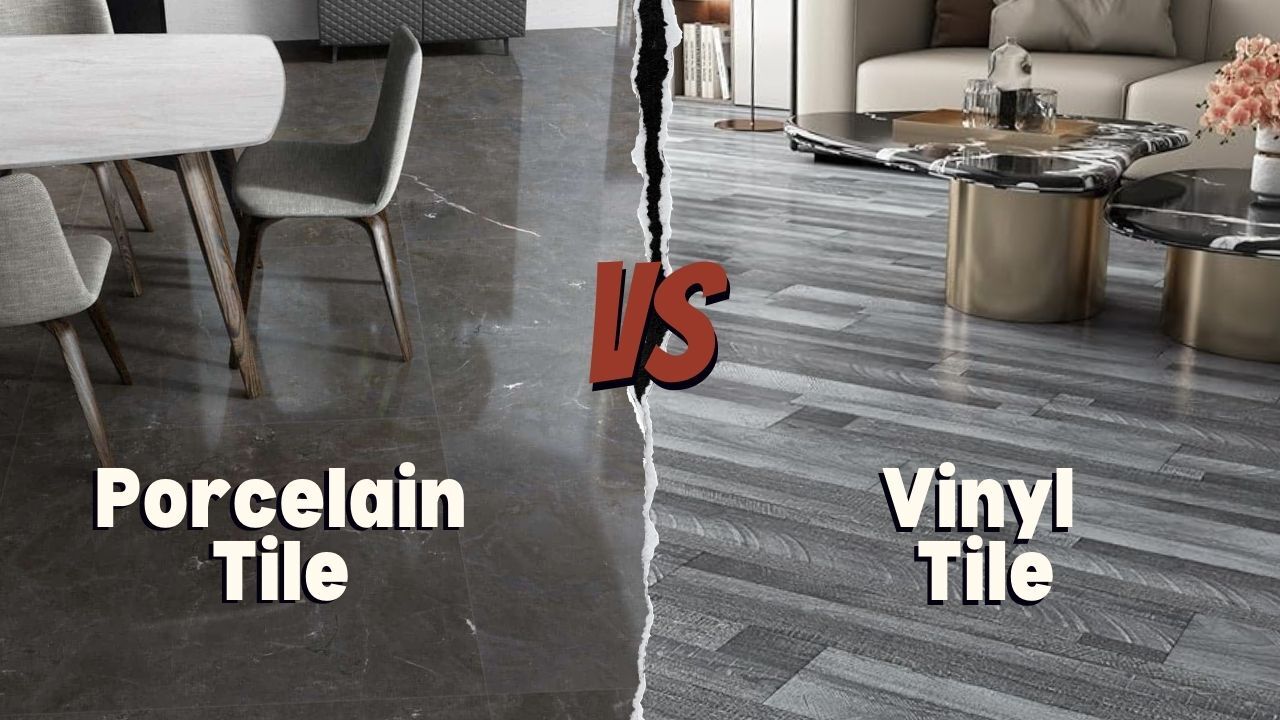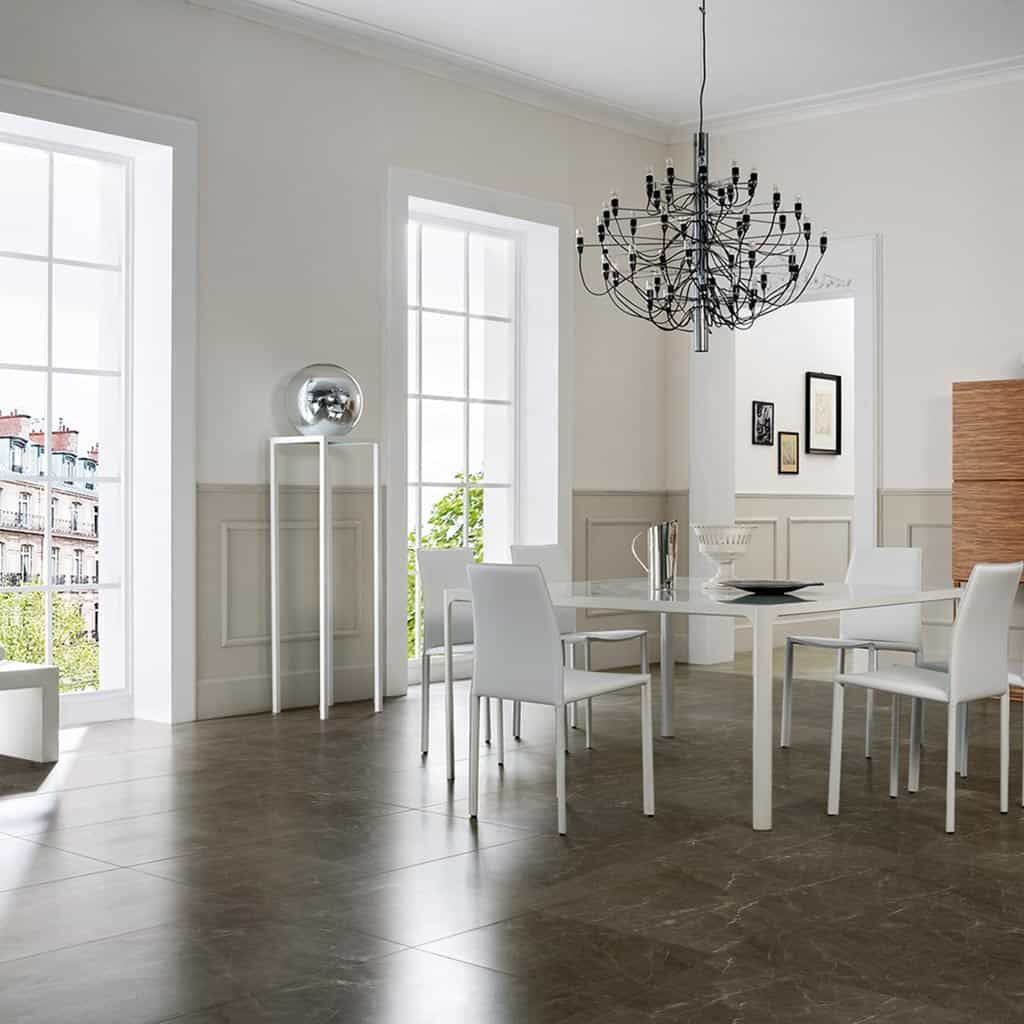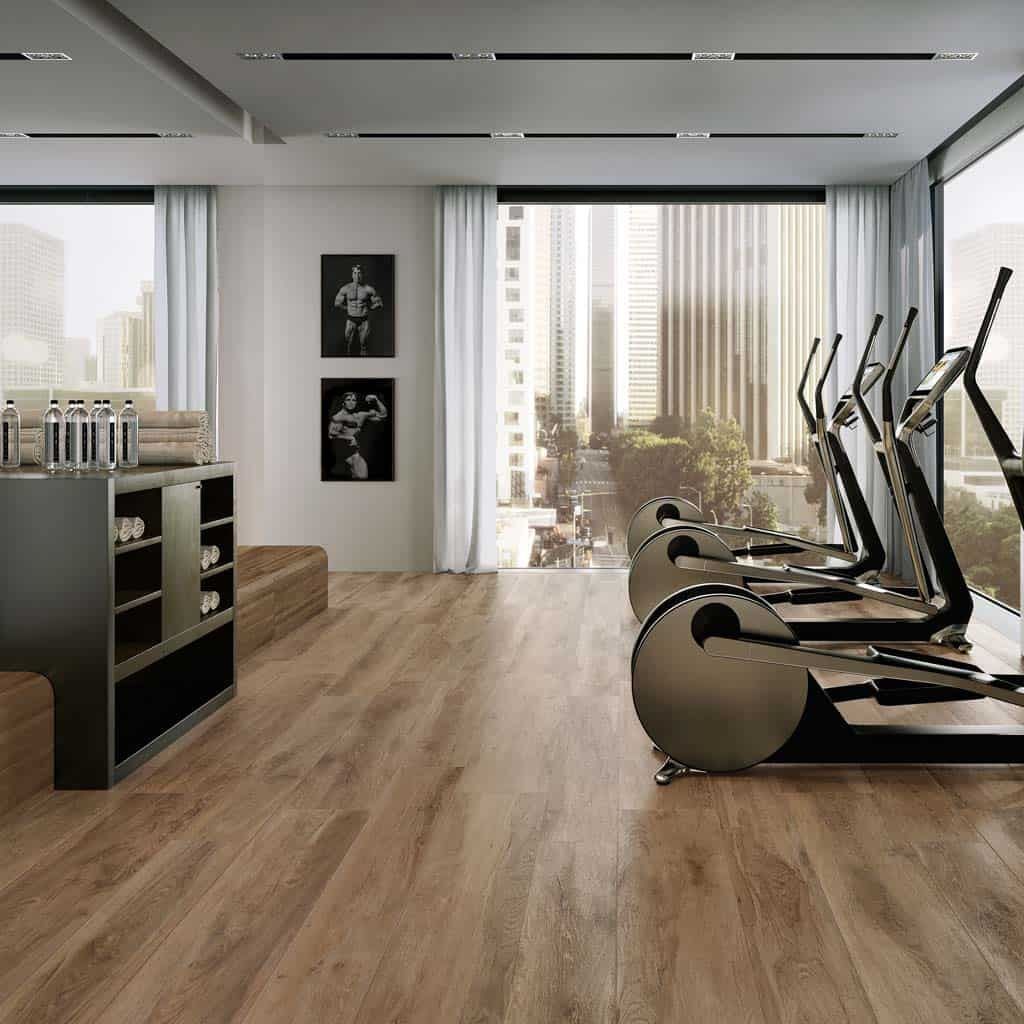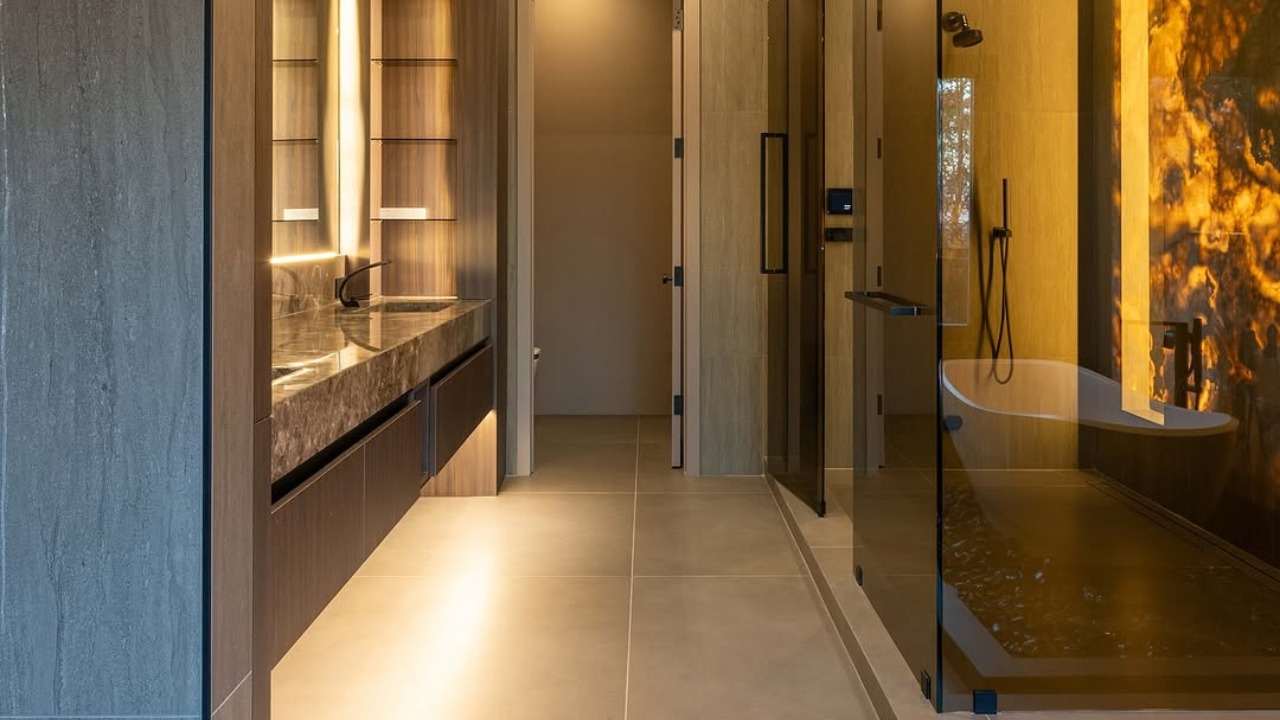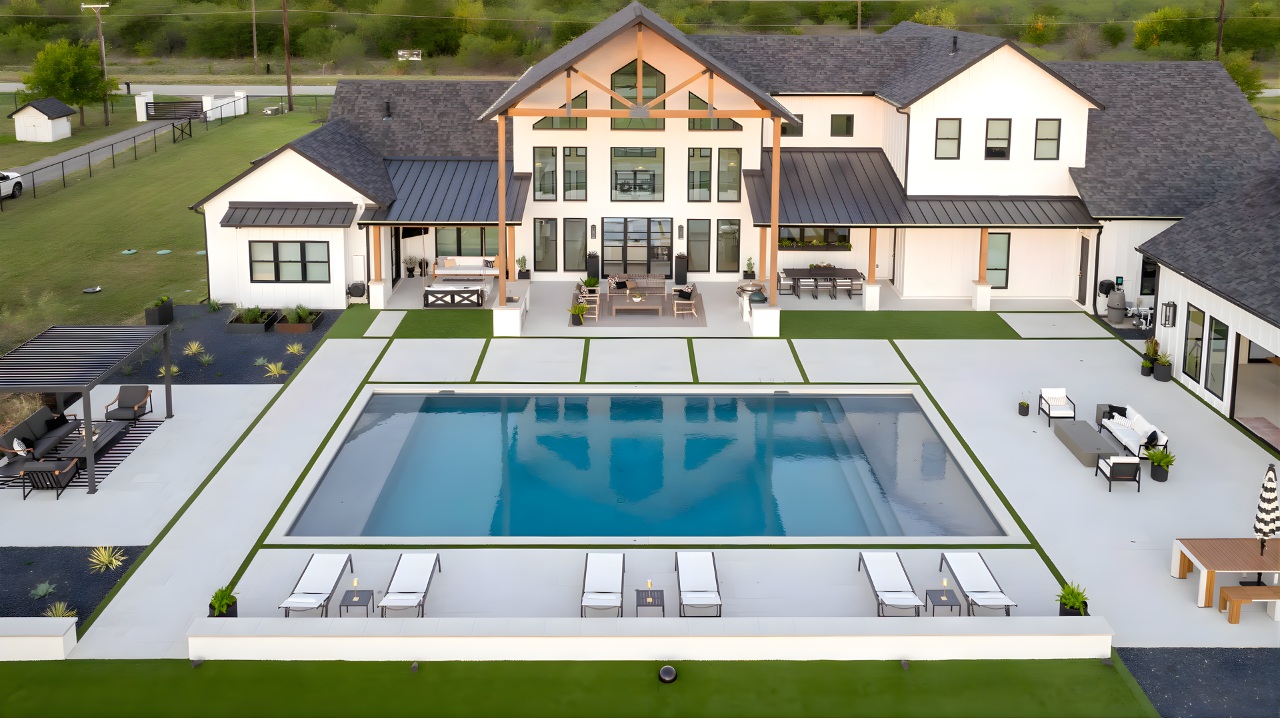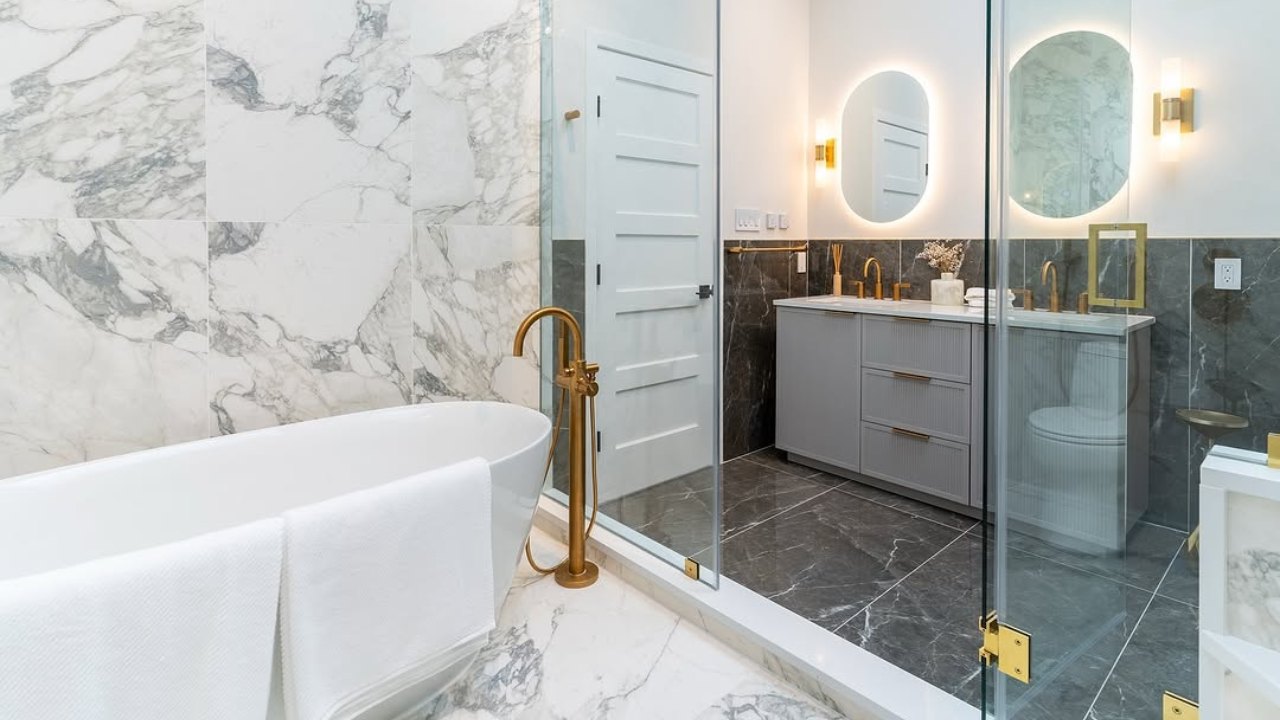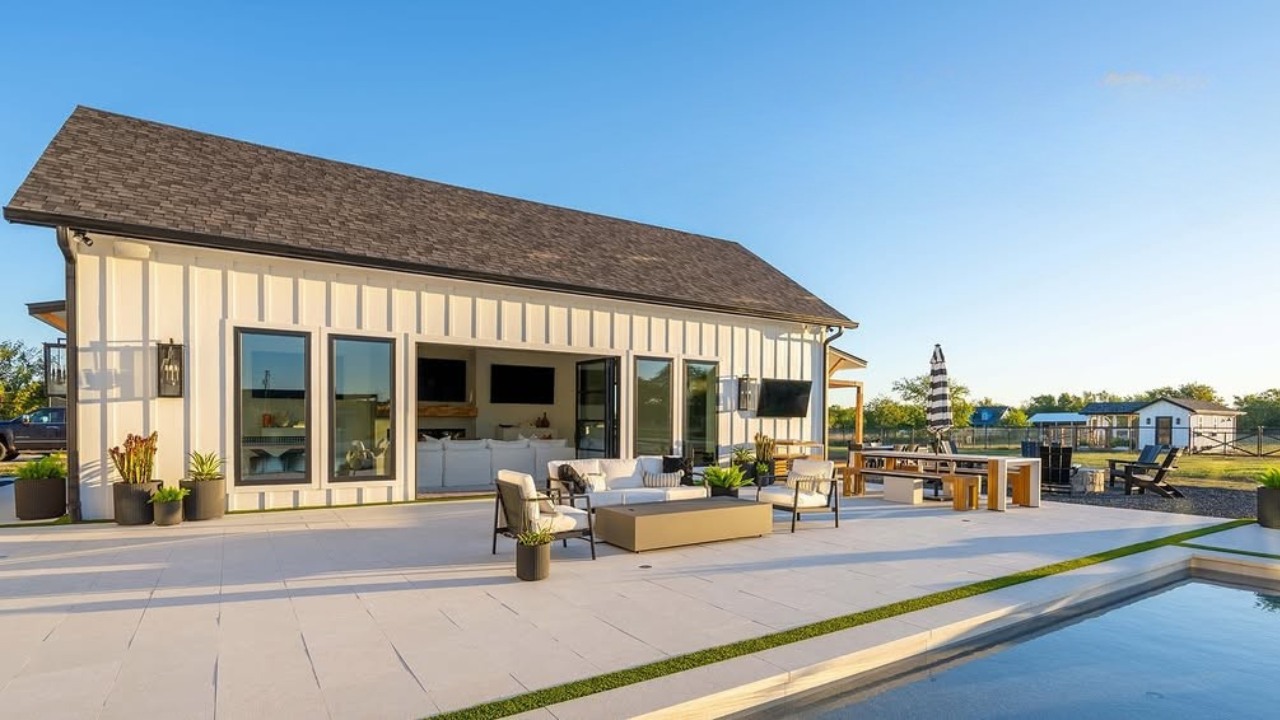Are you looking for the perfect flooring for your kitchen, bathroom, or any other high-traffic area that frequently experiences scratches and stains? You may find buyers comparing the two most preferred tiles for such places.
While both options offer durability, aesthetics, and low maintenance needs, their benefits can vary in multiple ways depending on where they are being used. Not knowing their features and specialities can make it confusing to make the right choice. Let’s discuss a detailed comparison in the article below.
Differences in Porcelain vs Vinyl Tile Comparison
When selecting the best flooring tile, understanding the key differences is essential. Since both tiles offer exceptional durability, resistance, and aesthetics for your space, you may think they’re the same and choose the wrong option. The following are the key features that can make it easier for you to choose which tile suits you best.
| Feature | Porcelain Tile | Vinyl Tile |
| Installation | Requires professional installation, cutting tools, adhesives, and precision. | DIY-friendly with an easy-to-install click-fit system. The glue-down type needs more effort. |
| Appearance & Style | Comes with premium, unique designs, textures, and high-end finishes made from natural materials. | Printed repeating patterns and designs mimicking wood or stone on the surface. Less realistic but still attractive for budget projects. |
| Water & Moisture Resistance | Highly water-resistant, but grout lines need sealing. | Completely waterproof due to tight interlocking edges. |
| Heat Resistance | Handles extreme heat well without damage, discolouration, or warping. | Can yellow, soften, or melt if exposed to high heat. |
| Durability & Lifespan | Very strong, scratch-resistant, and ideal for heavy traffic. It can last 40–50 years with proper care. | It can last 10-20 years, has a softer surface, and is prone to dents and scratches. |
| Maintenance | Needs simple cleaning but regular sealing of grout lines. | Very low-maintenance. Just sweep and mop with vinyl-safe cleaners. |
| Repairs | You can replace damaged tiles, but you will need adhesive and grout. | Easy to replace damaged sections, especially with click-fit planks. Glue-down versions take more effort. |
| Cost | Higher upfront cost due to material, installation, and prep work. Best for the long term due to its longevity. | Lower initial cost since professional installation isn’t required. More budget-friendly for short-term use. |
The installation process for both tiles is slightly different. One tile offers a DIY installation, while the other may demand professional tools and installers. Additionally, tile sizes and tile shapes can impact the complexity of the installation. Larger porcelain tiles, for example, may require more precision and cutting, while vinyl tiles often come in smaller, more manageable sizes that are easier to handle for DIYers.
Installation Process For Vinyl Tile
Vinyl tile can be an optimal choice for you if you’re skilled at DIY and prefer to work on your own. Its click-fit system allows you to install the flooring on a slightly less perfect subfloor without needing any professionals. You don’t need to use adhesive or fill grout lines in vinyl tiles, thanks to the powerful interlocking between them.
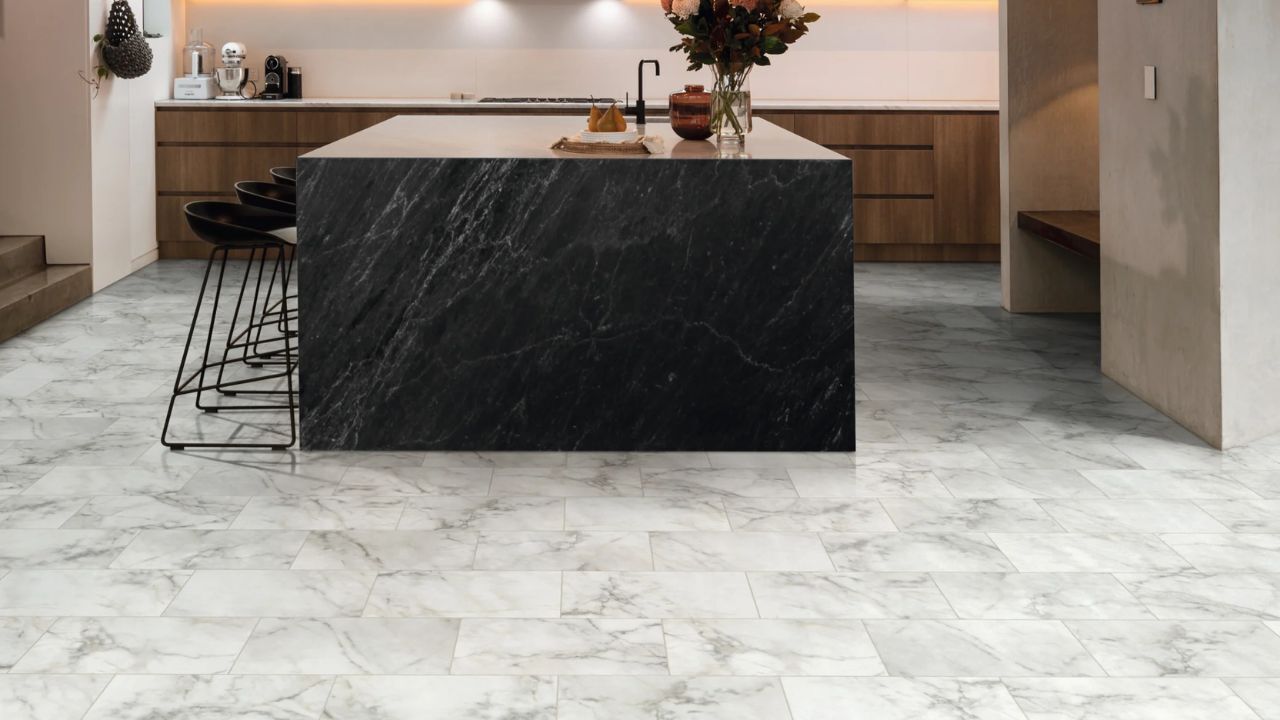
Installation Process for Porcelain Tile
The installation of porcelain tiles comes with more demands comparatively. It requires more precision, professional tools, and experienced installers for seamless fitting. Porcelain pavers installation involves preparing and leveling the subfloor, cutting tiles to fit perfectly, and using a grout filler in the spaces between tiles.
Appearance And Aesthetics
When comparing porcelain vs vinyl tile for visual appeal, porcelain tiles take the lead. It is due to their uniqueness, quality, and variations in colours, textures, and patterns, thanks to their manufacturing process using natural materials.
Vinyl tiles are no less, but they might lack the uniqueness and attention to detail due to the printing of patterns, colours, and designs onto their surface. These tiles usually mimic the look of natural stones, woods, and hardwoods while following repetitive and continuous patterns. These tiles may look cheap and are best suited for small budget projects.
Water/Moisture And Heat Resistance
Both porcelain and vinyl tiles serve best in wet conditions since both of them are highly water and moisture-proof. None of them absorbs water or moisture spills and splashes. However, to maintain this property, porcelain tiles require constant sealing of grout filling.
Even though water doesn’t penetrate grout lines, moisture stains can cause an issue. On the other hand, vinyl tiles don’t need constant sealing since they’re tightly clicked with each other and there’s nothing to be decolourised.
When it comes to heat resistance, porcelain tile installation takes the lead in the comparison between porcelain and vinyl tile. It is because vinyl tiles are more prone to damage, yellowing, and melting in extreme heat, while porcelain tiles are not.
Durability
Both porcelain and vinyl tile are durable enough to endure pressure and high traffic activity when compared to other options. But in porcelain vs vinyl tile, vinyl tiles can easily get scratches, cracking, and dents due to their softness. The average life span of a perfectly installed vinyl flooring is between 10 and 20 years under peak conditions.
Comparatively, porcelain tiles can last 40-50 years, depending on how regularly you maintain them. While it is both water and heat-resistant, it also easily withstands regular pressure and heavy activity, making it optimal for high-traffic places and rooms.
Maintenance And Repairs
Both porcelain and vinyl tiles are easy to maintain, but vinyl tiles are easiest to keep up with. All it needs is to be mopped using a vinyl-safe cleaner and a dry or slightly wet cloth to avoid damage from chemicals. It takes a slight edge in porcelain vs vinyl tile since porcelain demands regular sealing and re-coating of grout lines. To maintain your porcelain tiles, using the best grout cleaner is essential for keeping grout lines clean and protected. If an incident happens that damages the flooring, you just need to replace the damaged section with a new tile, and you’re good to go.
Repairing vinyl tiles is as easy as fitting blocks if you’ve installed them using a click-fit system. However, glue-down tiles may demand more time and the right tools. The process is also similar for porcelain tiles. You just need to remove the damaged tile and install the new one with the matching pattern using adhesive and coating for grout lines.
Cost And Value
Porcelain tiles are slightly more expensive due to their durable property and longevity. Its overall pallet of tile cost also includes purchasing the required additional materials, hiring professionals, and levelling the subfloor if needed. The endurance of these tiles cuts down the need for constant maintenance and replacement of damaged parts. This makes it a cost-effective option for long-term usage. Wondering where to buy porcelain tile? Visit NT Pavers showroom for top-quality options!
Vinyl tiles are slightly cheaper to install due to their lower price and the fact that there is no special demand for professional installation or additional materials. Even if you’re using the glue-down version, there is no need for subfloor preparation and labour.
Frequently Asked Questions
Let’s explore answers to your most common questions about porcelain vs vinyl tile comparison.
Which one is better, porcelain or vinyl tile?
Porcelain is denser and more durable, while vinyl tile is soft and better for the budget.
Which tile is more eco-friendly?
Porcelain is more eco-friendly because it is made of natural clay and minerals. Vinyl is a plastic-based material and is less sustainable.
Which one can I install by myself?
Vinyl offers a DIY-friendly installation. But porcelain tiles require professional cutting, grouting, and levelling of the subfloor.
Which tile is more expensive?
Pricing depends on your chosen quality. Generally, vinyl tiles are less expensive than porcelain tiles.
What’s the life span of porcelain and vinyl tile?
Porcelain tiles lasts 40-50 years with regular upkeep. However, the life span of vinyl tile is between 10-20 years.
Conclusion
In porcelain vs vinyl tile, both of them are listed among the best floorings for your bathrooms, kitchens, or any other space. Porcelain outperforms in high-activity rooms with heavy water usage. It will cost more due to its remarkable resistance and aesthetics. As porcelain pavers suppliers in New Jersey, we offer top-quality options for durable, water-resistant flooring. Meanwhile, vinyl tile provides a soft and comfortable feel when underfoot. It is easy to install using your DIY skills and offers a consistent-looking pattern across rooms. It can be the right choice if you’re planning to stay on a strict budget. Choosing the right one depends on your needs and overall budget for the installation.

